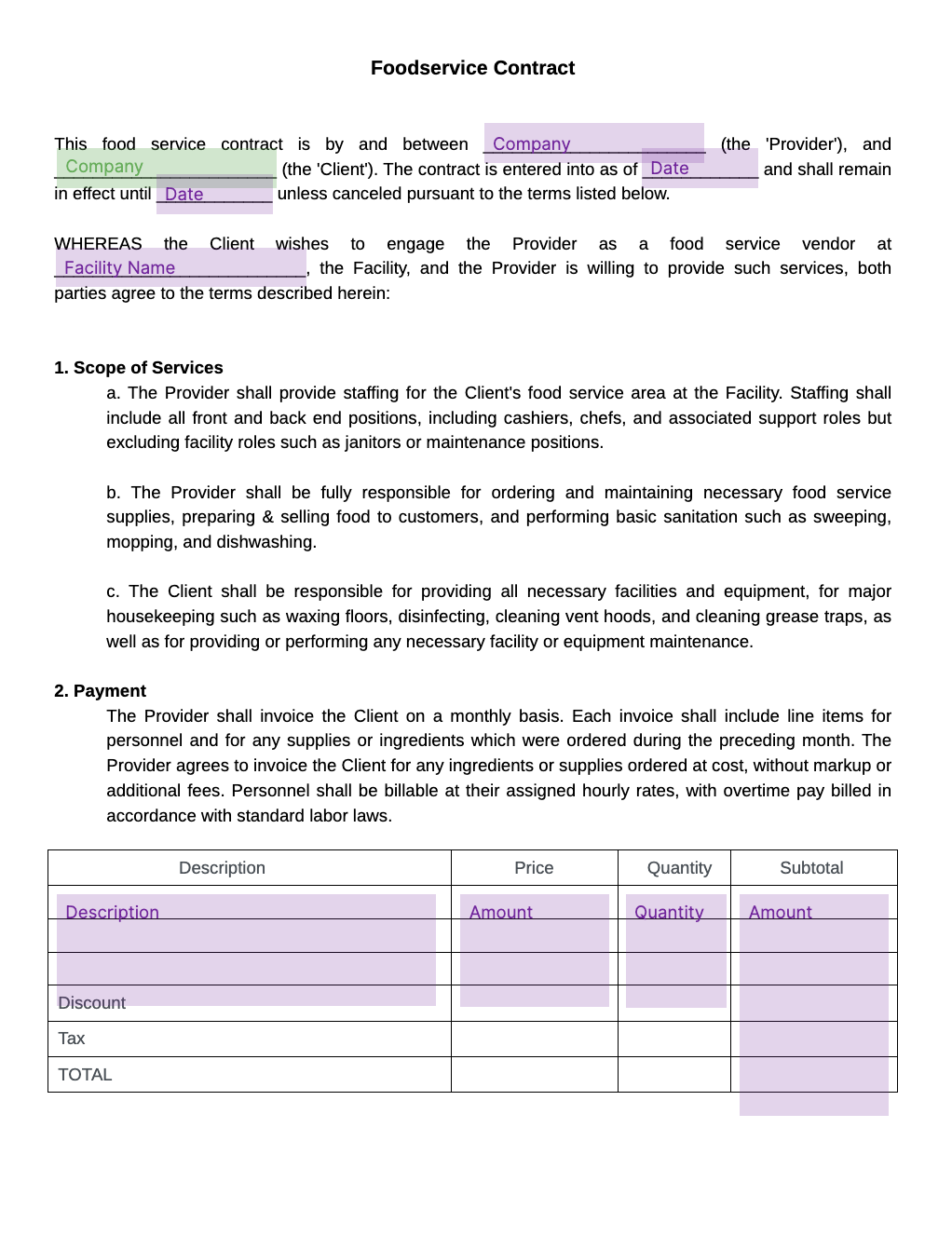Simplify the Art of Drafting Food Service Contract
A food service contract is an essential tool in the culinary industry, it is able to outline terms and expectations with your clients. Express clear communication and smooth business operations. Here, we’ll give you a guide on how to make an effective and direct contract.

What Is Food Service Contract?
A food service contract is a binding agreement between a client and a food service entity, like a caterer or dining establishment. This document stipulates the terms under which the service provider will deliver, possibly cook, and serve food and beverages to the client.
Components of a Food Service Contract
- Service details. This outlines the range of services offered, including food preparation, transportation, arrangement, serving, and post-event clean of.
- Menu items. A detailed list of food and drinks to be provided, including service sizes and options for special diets.
- Service dates. Clearly defined dates and timings when the services will be rendered, especially vital for singular events.
- Payment terms. Details encompass service charges, payment timelines, accepted transaction methods, and potential additional costs.
- Equipment and setup. Information on provided or necessary equipment, seating arrangements, tablecloths, and utensils.
- Staffing. Insights about the provided personnel, including chefs, waitstaff, and bartenders, and their distinct responsibilities.
- Contract termination. Guidelines for contract dissolution, including notification periods, potential penalties, and valid grounds for termination.
- Liability provisions. Rules about who’s responsible, insurance, and what happens if something goes wrong or gets damaged.
- Special conditions. Supplementary requirements, such as health standards, regulatory compliance, or specific client requests.
- Conflict resolution. Protocols presents process for addressing and resolving any potential discrepancies or challenges during the contractual tenure.
Benefits Of Using A Food Service Contract
A food service contract is the cornerstone of efficacious engagements within the food and event industry. It fortifies mutual understanding, ensures smooth operation, and guarantees that both parties interests are both protected.
The significance of a food service contract is anchored in its ability to frame a transparent and systematic pathway for culinary endeavors. Here are the pivotal advantages it offers:
Establish guidelines
Enable mutual understanding with your clients regarding roles and expected outcomes.
Financial transparency
The contract should clearly show costs, modes of payment, and dates to avoid confusion or unexpected charges.
Safeguard interests
Incorporate controls for solving issues, potential sanctions, and a clear criteria, ensuring a smooth operational trajectory and overcome challenges.


